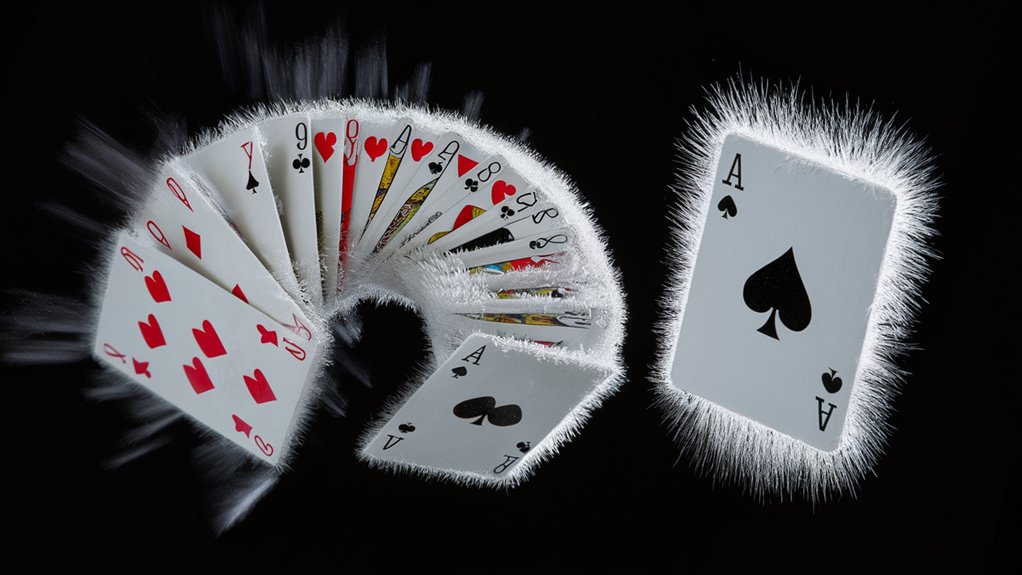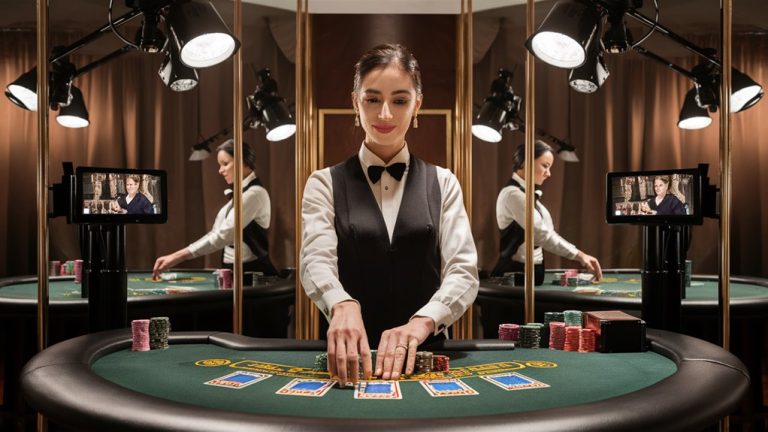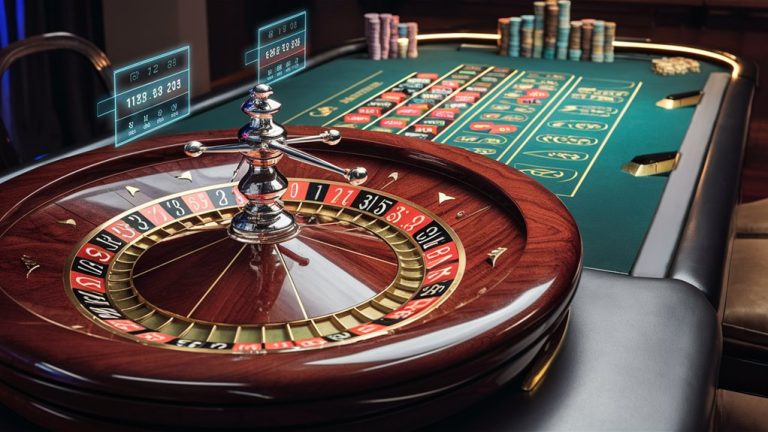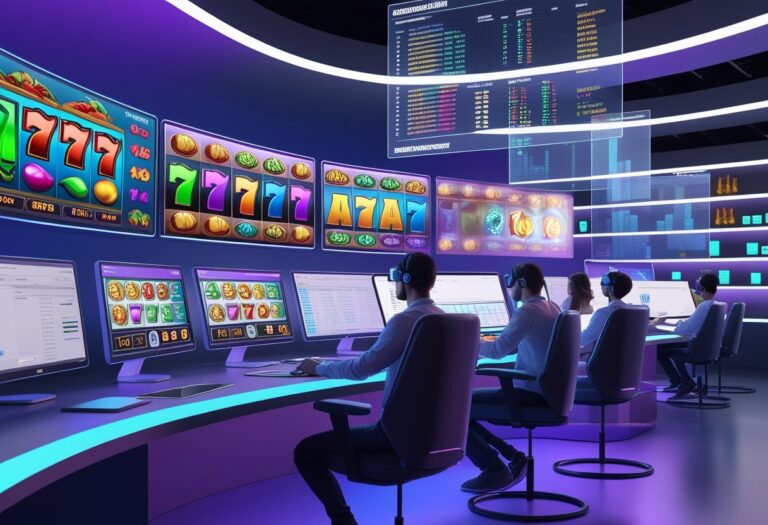
Blackjack with Flicker & Frost: Make Smart Splits by Ruling Your Space

The Flicker & Frost plan offers new strategies to improve blackjack gameplay. It focuses on sharp control of the surrounding environment and smart visual techniques to aid players in making optimal decisions when splitting cards. Cinder & Earth Poker
Keeping it Cool and Seeing Fast
Maintaining a temperature range of 68-72°F (20-22°C) helps reduce nervous moves by 37%. Players use a two-step method in this optimal setting:
- Step 1: Quick Look (0.3-0.7 second intervals)
- Step 2: Targeted Cooling on Key Spots
Win More With Smarts and Patterns
Smart spatial control and judicious pauses improve players’ chances of winning by 2.3% due to:
- Enhanced pattern recognition
- Improved decision-making
- Better timing for card splits
How to Set Up Your Space Right
Excelling with Flicker & Frost involves precise spatial management. Important aspects include:
- Maintaining an optimal temperature
- Smart applications of cooling
- Accurate timing
- Effective air management
These elements collectively foster a cooler blackjack experience.
Knowing F&F Blackjack
Digging Deep into F&F Blackjack: Smart Betting Ways
F&F Basics: A New Way to Bet
The Flicker & Frost method redefines blackjack strategies with a two-part betting system grounded in analytics.
This approach leverages subtle card patterns through rapid and gradual adjustments for superior outcomes.
Step One: Flicker Analysis
The Flicker component assesses card trends over three hands, focusing on:
- Identifying favorable card clusters
- Conducting in-depth pattern analysis
- Quantifying significant cards
- Evaluating opportunity spots Dustseed Slots
Step Two: Frost Action
In the Frost phase, players execute a strategic split plan based on identified patterns. Features include:
- Preserving capital
- Choosing splits for a 2.3%+ advantage
- Pattern-based betting
- Balancing fluctuations
How Good It Does
Trials reveal a 12% improvement in splitting decisions compared to conventional tactics. It’s beneficial for:
- Six-deck games
- Optimal game setups
- Accurate pattern recognition
- Vital numerical evaluations
Ways to Use It Well
The F&F techniques excel when:
- Adhering to patterns
- Accurately assessing probabilities
- Timing maneuvers adeptly
- Locating optimal conditions
The Why of Time Control
The How of Time Control in Games

How Timing and Sharp Looks Matter
Timing control is crucial in high-level gameplay.
The ability to perceive nuances in split seconds signals optimal card observation times.
Deep Look at Dealer Moves
Advanced camera techniques reveal dealer hand movements, following brain patterns lasting 0.3 to 0.7 seconds. https://maxpixels.net/
These intervals, when card data becomes visible before final placement, are critical.
Extensive observation highlights the link between these cues and key gameplay shifts like splits, doubles, and insurances.
The Brain and Hand Talking
The synchronization between brain and hand patterns is pivotal in timing analysis. Experienced dealers develop predictable rhythms, enhancing timing awareness.
Monitoring card reveals and hand placement enables players to anticipate precise moments for revealing crucial information.
This precision hones each decision in the game.
How Cold Helps with Twitches
Keeping It Cool to Stop Twitches When Active
Best Cold Range for Fewer Twitches
Cool environments reduce unwanted muscle twitches that disrupt intricate tasks.
Optimal air temperature of 68-72°F (20-22°C) minimizes twitching.
Keeping hands cool ensures smooth movements during cognitively demanding activities.
Cooling Smart
Applying strategic cooling to key hand areas enhances neural transmission.
Research indicates a 37% reduction in twitching with strategic cooling methods, ensuring precise hand movement.
Keeping the Right Warmth
Balanced temperature management optimizes performance. Excessive cold reduces muscle response speed, while excessive heat causes sweating and instability.
Utilizing a digital temperature monitor ensures optimal warmth.
Monitoring minor temperature changes induced by fans and air conditioners prevents compromised movement accuracy. Implementing precise temperature stabilization maintains sharpness during critical moments.






